_c5efac694f.jpg)
How To Put Out A Grease Fire Kitchen Safety Basics DAR PRO Solutions
Before turning the heat on, ensure the burner or stovetop is cool. Also, clean any excess grease or oil spills from the drip pan and around the burner. Check the heat ratings of cooking oil. The ratings indicate the maximum temperature the oil can be cooked at before catching fire. The smoking point of most vegetable oils is around 450°F and.

How to Put Out a Grease Fire YouTube
Regular cleaning helps prevent fires caused by grease accumulation in the exhaust system while ensuring proper ventilation throughout your establishment. NFPA 96 Standards and Guidelines.. By scheduling regular inspections and cleanings with a reputable company, you can rest assured that your commercial kitchen is operating at peak.

How to Put out a Grease Fire 13 Steps (with Pictures) wikiHow
Don't extinguish a grease fire with water or a wet towel. Don't use flour, baking powder or sugar to smother the fire. Don't remove the pan from the burner or place it in the sink. The oil may splash around and potentially burn you. Don't move the pan into the sink, even if the fire is smothered.
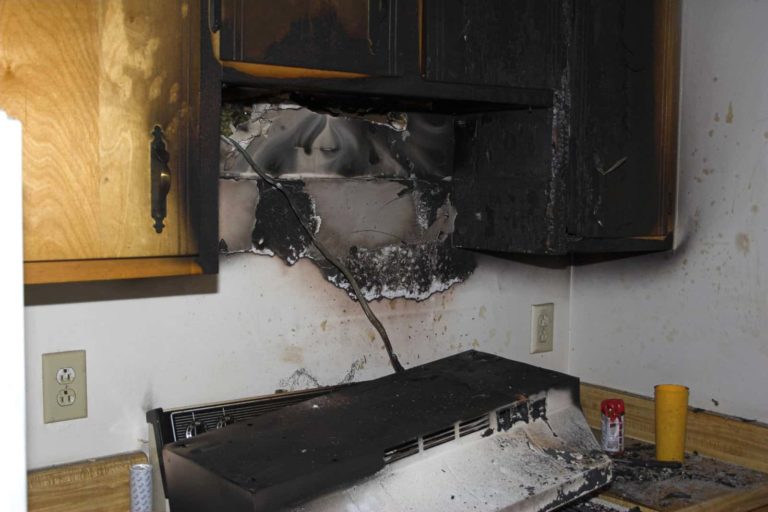
How to Prevent and Put Out a Grease Fire Brigade Fire Protection
Pre-soak towels to remove as much oil as possible before washing. Remove materials from the dryer as soon as the full drying cycle is done (including the cool down portion). Refrain from leaving them in the dryer for long periods of time, especially overnight. Properly maintain washing and drying appliances to remove grease buildup.
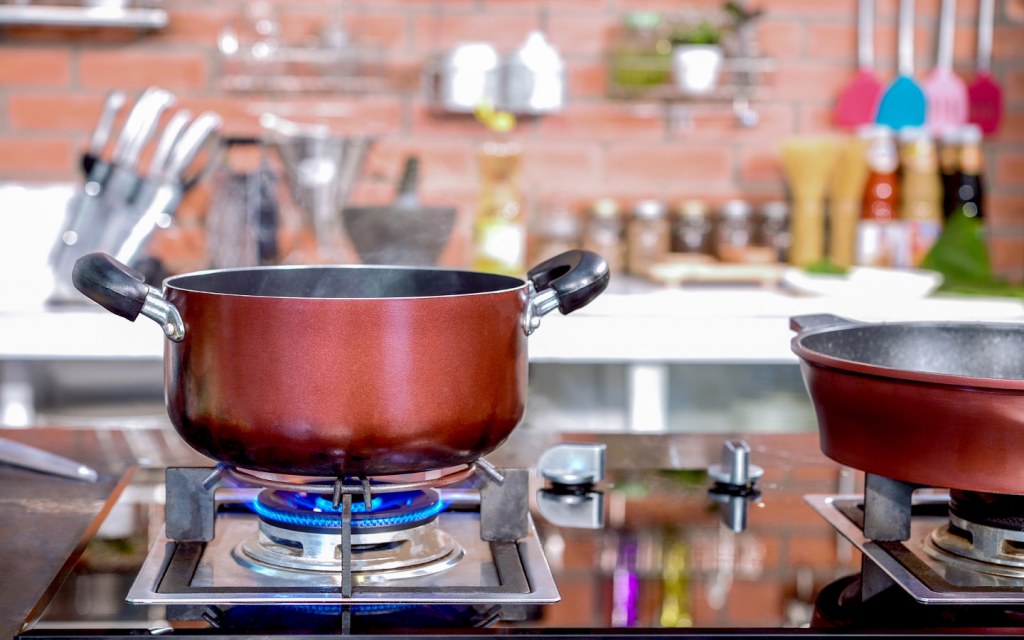
Grease Fire Causes & Prevention Measures Zameen Blog
Preventing grease fires requires a proactive approach and a commitment to maintaining a clean and safe kitchen environment. Skip to content Mon - Fri: 09.00am - 10.00pm

How to Prevent Kitchen Grease Fires 10 Steps (with Pictures)
Ventilation system inspection: Regular inspection and cleaning of ventilation systems prevents grease accumulation, which can fuel fires. Emergency r esponse p lans: Having well-defined emergency response plans in place, including evacuation procedures and communication protocols, ensure that staff can respond quickly and effectively to a fire.
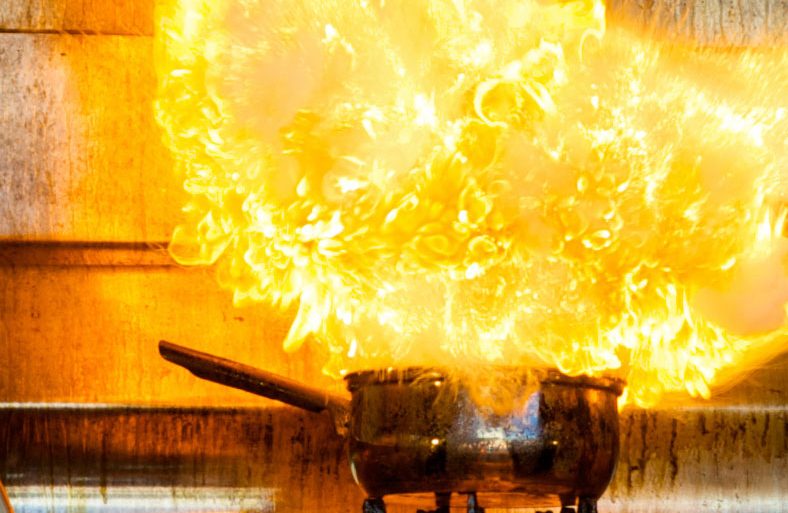
Tips to Avoid Grease Fires Friedman's Ideas and Innovations
Discover how scheduling regular cleaning for your commercial kitchen equipment can help restaurant owners prevent dangerous grease fires, maintain compliance, extend equipment lifespan, and ensure a reliable kitchen operation.. Regular cleaning emerges as a key player in preventing the chaos that ensues from grease-related emergencies..
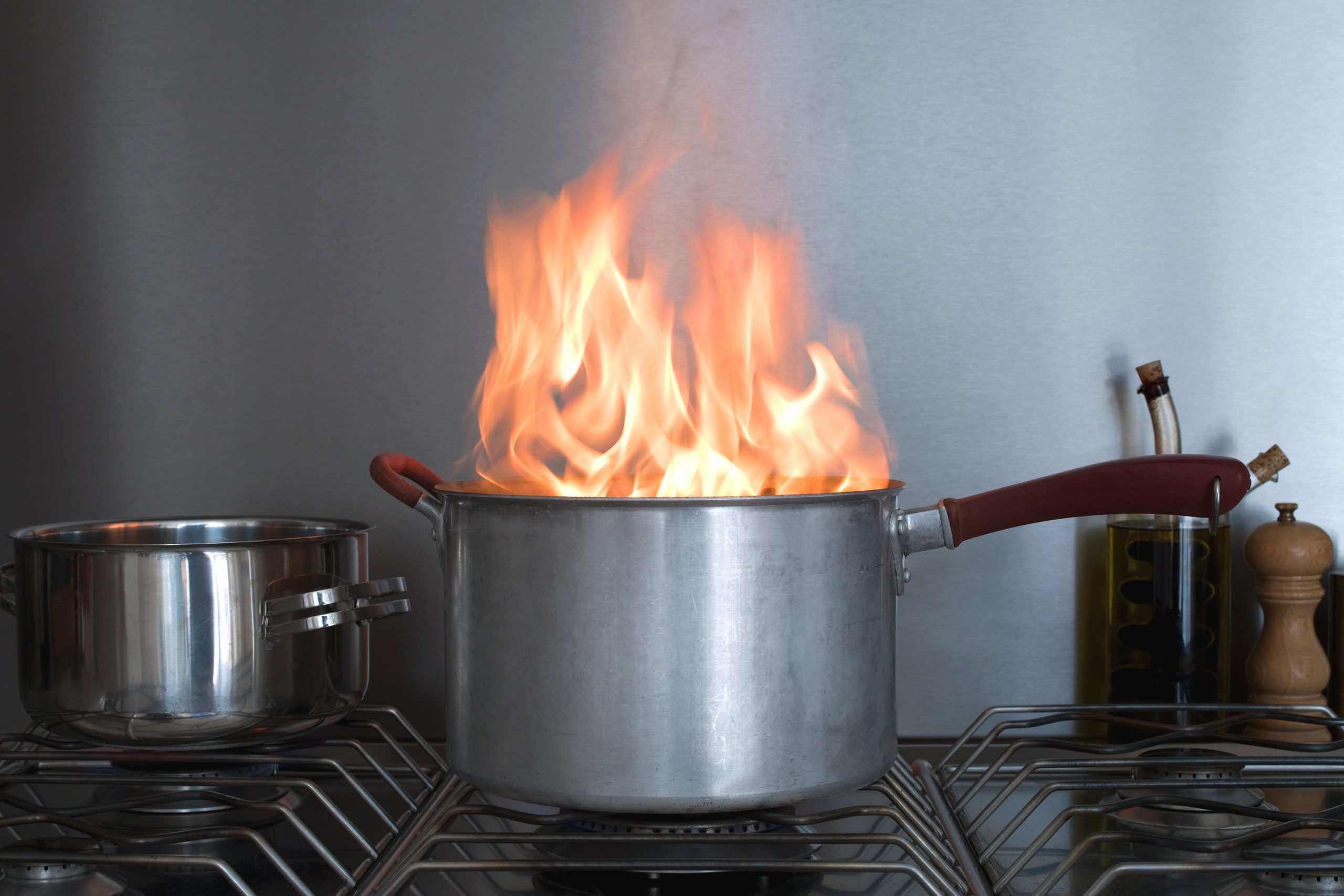
How To Put Out Oil Fires Discount Price, Save 42 jlcatj.gob.mx
Deep fat fryers are a major cause of kitchen fires. Oil can splash and easily come into contact with an open flame from an adjacent piece of cooking equipment, such as a gas-fired range top. A 16-inch clearance must be maintained between the deep fat fryer and the open flame cooking equipment. If a 16-inch clearance is not possible, a vertical.
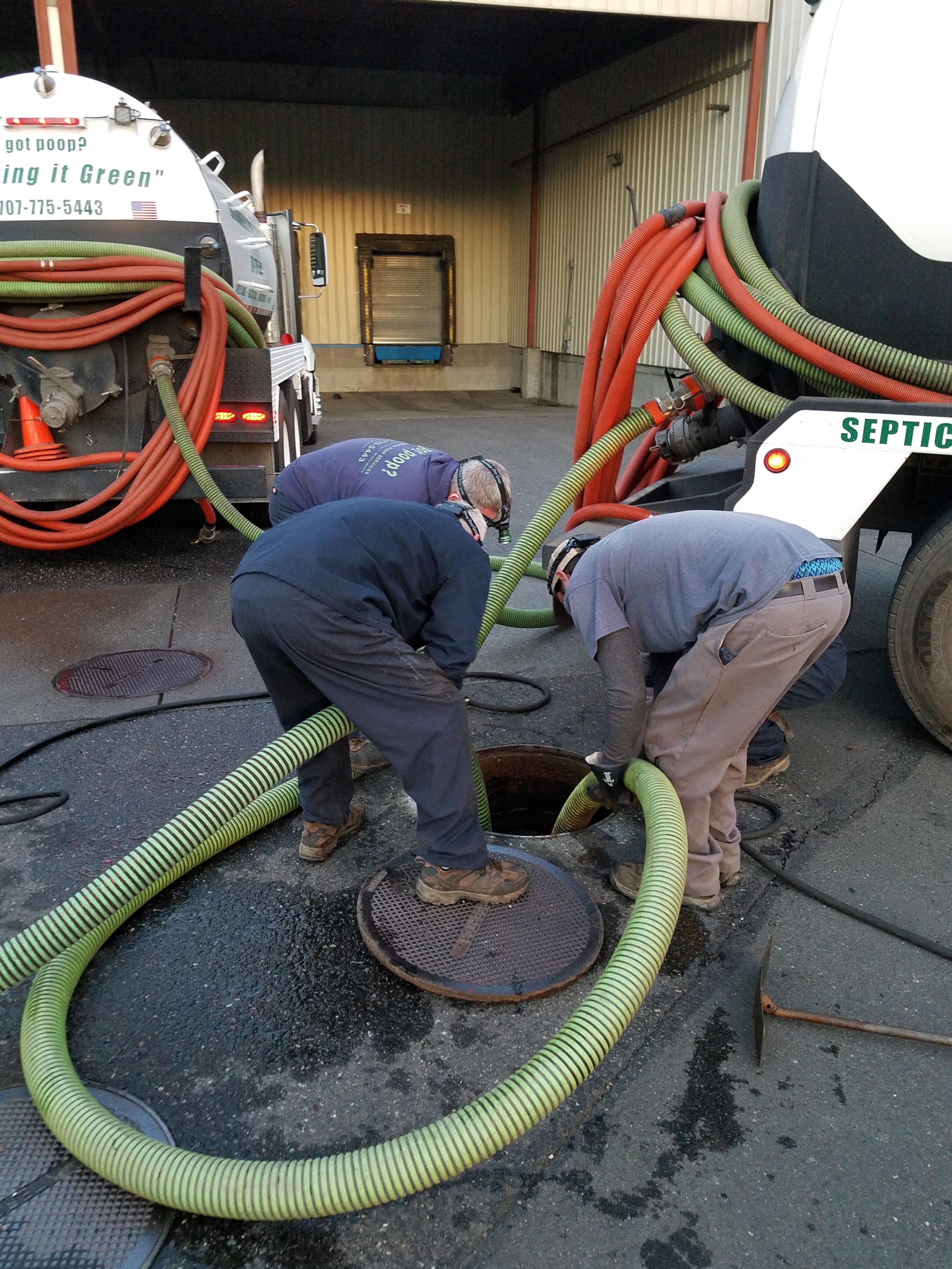
Grease Services Environment Pump Services, Inc
Grab nearby oven mitts - if you have time - to protect your skin. Turn it off. Grease fires need heat to keep burning. Turning the heat off can stop the fire at its source. Cover the pot. Using a metal lid (glass will shatter) or cookie sheet, cover the pot. Fire cannot exist without oxygen. Carefully extinguish.

4 Ways to Fight & Prevent Grease Fires Starting With Fire Extinguishers
Don rubber gloves. Fill a bucket with one gallon of warm water. Add 4 to 6 tablespoons of trisodium phosphate (TSP) and one cup of bleach, then mix well. Place a towel into the cleaning solution and use it to clean soot and smoke stains from walls, furniture, and ceilings. Repeat as necessary.
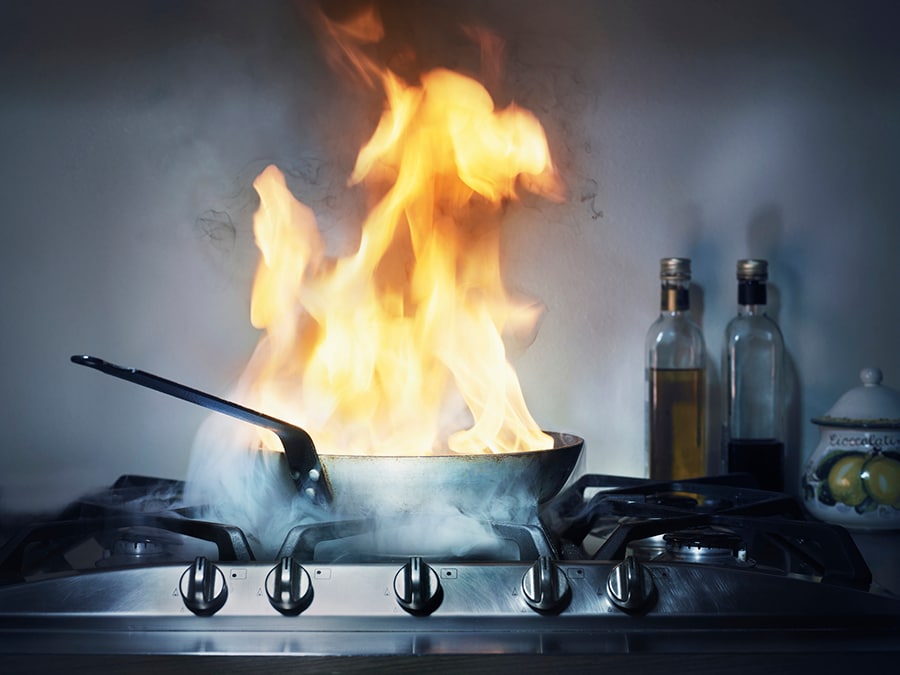
How to Put out a Grease Fire, Plus Fire Safety Tips
If you do have a grease fire, keep calm and take these steps: Turn off the heat. Use a lid to smother the flames. A towel will only fuel the flames, literally, and water sinks to the bottom of the pan, heats up and turns into a vapor that will cause a flaming oil explosion. Use baking soda to extinguish the fire.

How to Quickly Put Out a Grease Fire ServiceMaster Restoration by Zaba
What Makes a Grease Fire Worse? Never put or use any of the following on a grease fire: Water; Water is a no-no. Never pour water on a grease fire because this vaporizes instantly causing a steam explosion that will spread flames. Flour Flour on a grease fire will just fill the air with particles that would ignite and burst into flames. Baking.

How To Prevent Grease Fires In The Kitchen?
Schedule regular inspections: Create a schedule for regular equipment inspections and stick to it.. Prevent Grease Fires and Ensure Kitchen Reliability: The Importance of Regular Cleaning for Restaurant Owners. March 7, 2023. Preventive And Predictive Maintenance Ice, Ice, Baby: best practices for keeping your commercial ice machine in top.
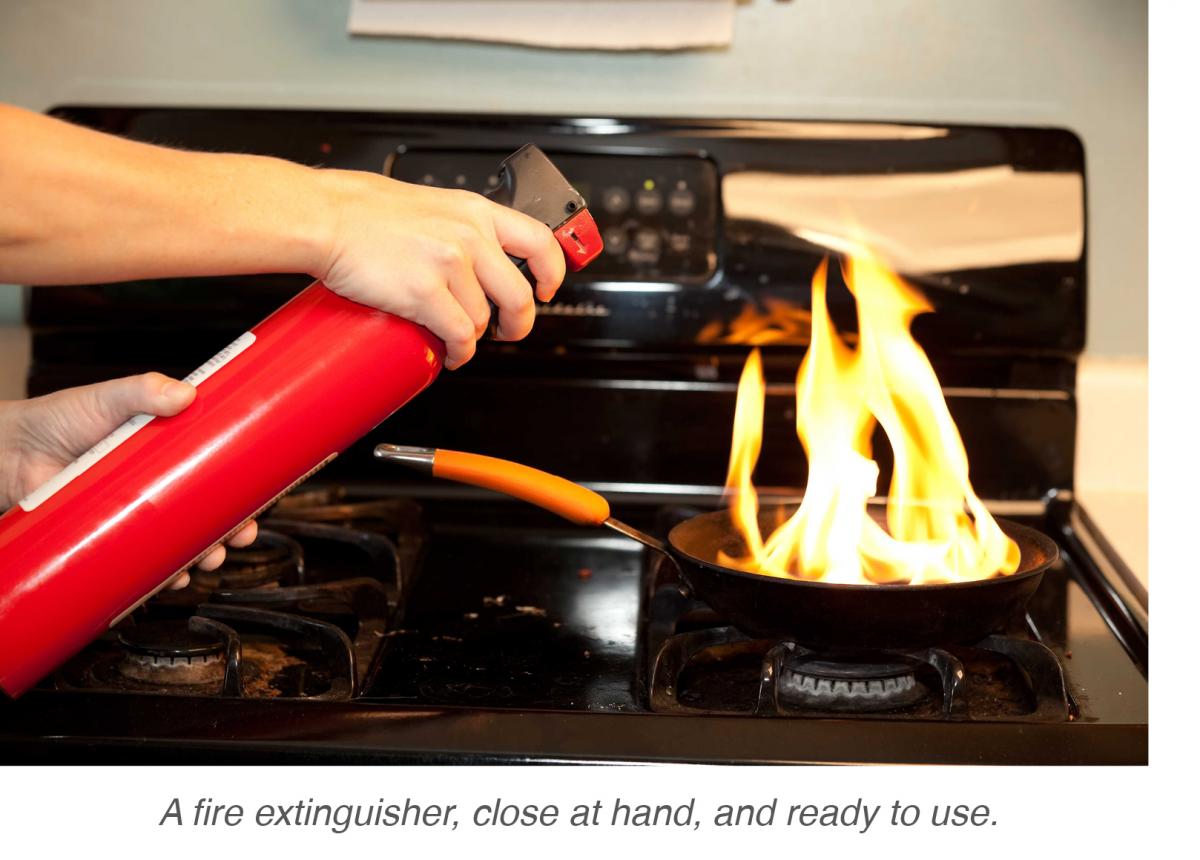
10 Ways to Prevent & Prepare for Grease Fires
If the flare up is contained to a pot or pan, use a metal lid to cover it and suffocate the flame, also don't be afraid to grab and use your fire extinguisher. "All kitchens should have a kitchen fire extinguisher or a dry chemical fire extinguisher in the kitchen in an easily accessible place near the cooking appliances in case of a grease.

How To Prevent Grease Fires In The Kitchen?
Cover the pot or pan with a lid. Depriving a grease fire of oxygen is the best way to put it out. The flames will be put out quickly if a lid is placed over the pot or pan to suffocate the fire. Make use of a fire extinguisher. Avoid using kitchen ingredients such as flour. Despite suffocation, such items could worsen the fire.

How To Stop a Grease Fire in 8 Easy Steps Safety Frist
The first and best defense against Grease Fires is to keep your grill clear of excess grease. The drip pan is designed to collect and divert as much grease as possible. It can, however, collect grease. Be sure to clean it between cooks, especially after fatty cooks and before high temperature (350+) cooks. Be sure to clean the grates of excess.